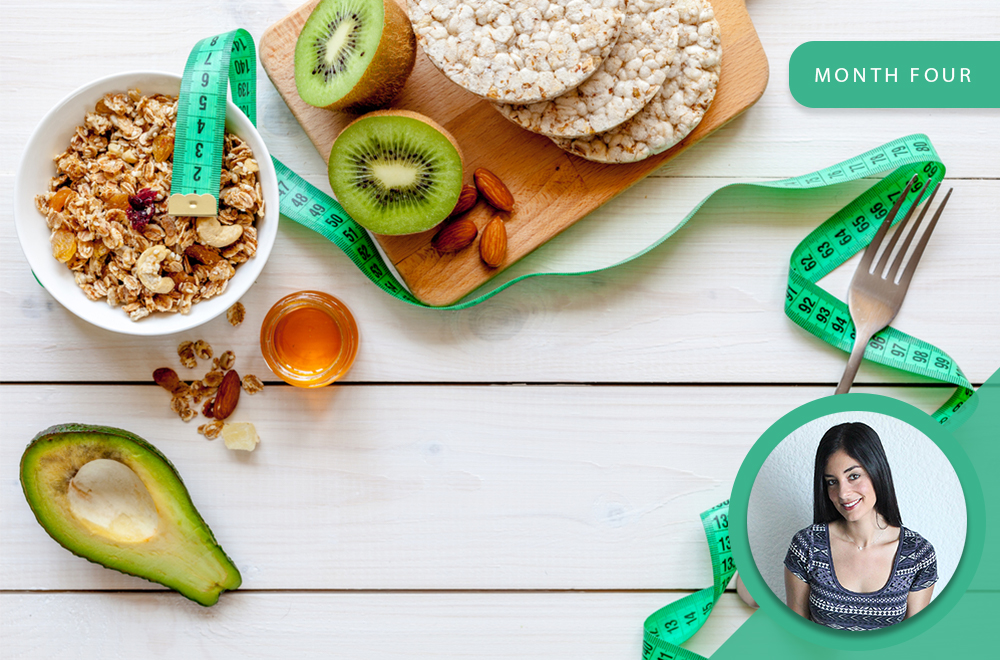
13 Jul Pregnancy: Month 4: What Our Dietitian Has To Say
You’ve made it to the second trimester, you can breathe a little bit easier knowing that your risk of miscarriage has dropped dramatically. Most women will find that their energy, mood and appetite improves dramatically in the second trimester, which means that this is a great time for you to focus on getting in tons of nutrients and to do a bit of gentle movement.
However, even though your appetite may have improved, and nausea may have lessened, you may still experience food aversions. Food aversions are thought to be caused by hormonal changes during pregnancy and are often accompanied by nausea, vomiting and food cravings. This is because the same hormonal shifts that cause food cravings and nausea, also cause food aversions.
Food aversions are characterised by being repulsed by particular foods, to the point that the smell or taste of that food may induce nausea or vomiting. You may experience food aversions towards foods you have loved your entire life, or towards foods you have always disliked. Your food aversions, just like your cravings, may change throughout your pregnancy. Both food aversions and cravings don’t reveal anything about your nutritional status. Even though a lot of women may believe that they crave or reject foods that their body or baby needs or doesn’t need, this is generally not the case and aversions are most likely simply related to hormonal effects during pregnancy. This means that food aversions can be completely random and even though they are very normal, they may have a role to play in determining your nutritional intake during pregnancy.
Any food can become a food aversion during pregnancy but the most common aversions include meat, eggs, milk, onions, garlic, spicy foods, strongly flavoured foods and fatty or fried foods. Whilst you can’t control your food aversions, you can make sure that you are getting in all of the nutrients you need during this time whilst working around these aversions.
TIPS FOR COPING WITH FOOD AVERSIONS:
- Avoid the foods that cause you to have a bad reaction but don’t write them off for the rest of your pregnancy. Aversions change over time so try again in a couple of weeks.
- If you are having aversions to meat, eggs and milk, make sure to get enough protein and iron in from other sources. Legumes, nuts, seeds and soya products are great sources of protein and iron and are generally well tolerated during pregnancy. Try these high protein savoury muffins made with chickpea flour.
- Avoiding milk can mean that you lose out on calcium so make sure to take a calcium supplement or to switch over to calcium-fortified plant milk.
- Make sure to get enough calories into your diet by eating the foods you do enjoy, even if these are limited. Fresh fruits, crackers and bland starches are usually well tolerated during pregnancy and can contribute lots of energy, fibre and vitamins so don’t be scared to fill up on these foods.



Michelle
Posted at 11:32h, 28 JanuaryIs it very safe to use the A Vogel Multiforce Alkaline Powder during preganacy? I’ve heard this powder has so many benefits for your body in general so wondering if it’s safe to start using while pregnant. It says it’s safe but just double checking!
Kerry Haarhoff
Posted at 16:07h, 28 JanuaryHi Michelle, always best to check with your practitioner before starting any new supplements, especially while pregnant.